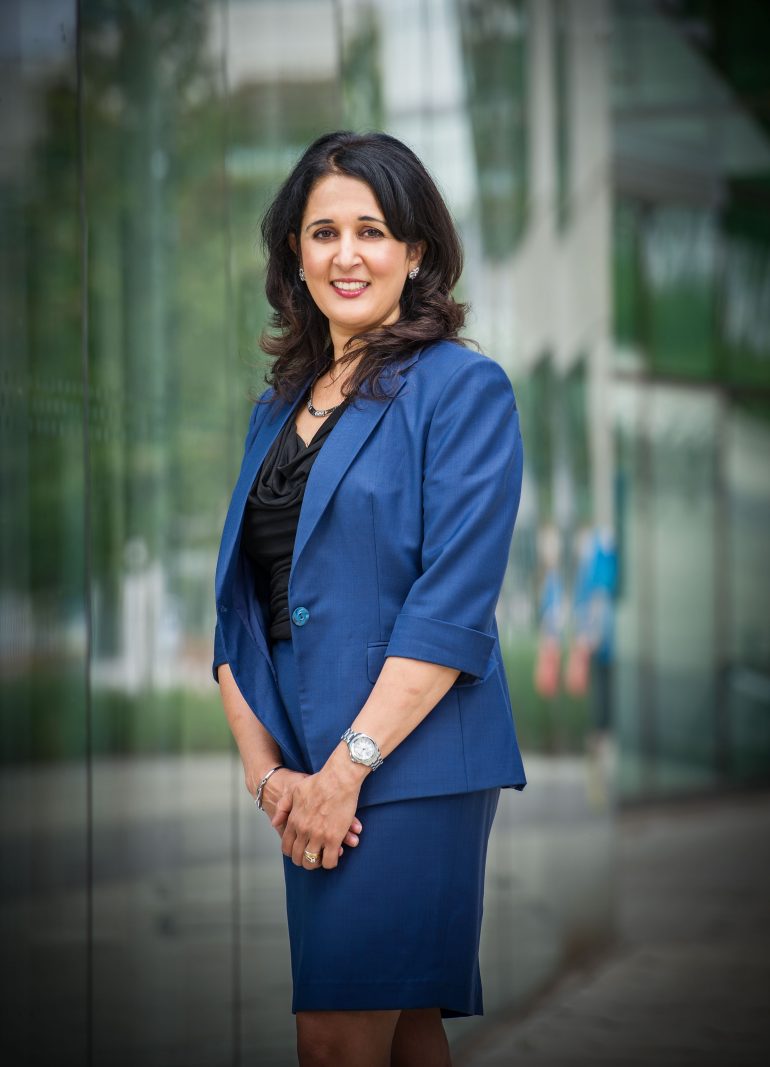SAHI: A Global Health Leader in South Asian Communities
BY GARY THANDI
Profile- Deljit Bains
Research has shown that people of South Asian descent are two-to-three times more likely to experience heart disease, kidney disease, stroke, and diabetes – and ten years earlier – compared to other ethnic groups. Some of the reasons for these higher rates include genetics and cultural influences, bad diet, and lack of exercise. The evidence indicates South Asians who immigrate to Canada are healthier than their Canadian-born counterparts upon arrival, but over time, their health deteriorates and eventually fall into the same quagmire where the long-term residents belong. These are the findings in the newly released South Asian Health Report which can be found on the Fraser Health website.
Fraser Health created the South Asian Health Institute (SAHI) to understand better the health needs of the South Asian. South Asians mainly reside in Surrey, Abbotsford, and Delta—that according to the National Household Survey, make up an estimated 34%, 22% and 17% of the local population respectively. Among South Asians, roughly 1 in 4 has been living in Canada for ten years or less.
Dr. Arun Garg is the Medical Lead of SAHI, established in 2013. He has a distinguished career, and he is the Program Medical Director of Laboratory Medicine and Pathology at Fraser Health and Cooperation and Engagement office in the Department of Pathology Medicine of the University of British Columbia. He is also the Special Advisor to the Dean of Health Sciences of British Columbia Institute of Technology in India.
Deljit Bains, the Manager of SAHI, is a Registered Nurse bringing over 25 years of healthcare experience in both the public and the private sector. She has held a variety of health care roles in acute care, education, and population-based community care. Deljit has served as a Health Services Manager for Fraser Health for the past nine years. She has managed complex surgical and cardiac programs and has worked as an educator for local colleges.
Deljit took on a leadership role with SAHI. Her interest, she advises, was “How can we become a healthier community? Where are the gaps and opportunities to better inform South Asian people to make healthier decisions?
Fraser Health and SAHI’s goals are to support Fraser Health programs and services to improve the health and clinical outcomes of the South Asian population in a culturally appropriate way through innovative, evidence-based care, and research; and local, national, and international partnerships. The primary purpose is to empower the South Asian population to make healthier decisions and result in people living more fulfilling lives. “Our goal is to work with community members, give them information and options, but ultimately let people decide on their own what kinds of changes they are comfortable in making.” South Asian Health Report can be found on Fraser Health’s website.
The Sehat Program is one of the initiatives developed through SAHI. The Sehat Program is working with places of worship, promoting healthy lifestyles. Volunteers are trained to engage with members of South Asian communities. “There is a lot of interest, and people are starting to ask a lot of questions about their health, diet, mental health, and exercise.”
Plans for SAHI includes expanding Sehat to additional places of worship, reaching new mothers through maternal/child programs at Surrey Memorial Hospital, and working with Fraser Health’s Mental Health and Substance Use Programs around tracking the stigma of mental health within South Asian populations.
Deljit notes that addressing chronic disease prevention and management requires a comprehensive, multi-level approach. Partnerships with community leaders and stakeholders are imperative. SAHI is acting as a catalyst for cooperation, collaboration, and coordination between Fraser Health and its community-based partners to provide culturally relevant services to improve the health of South Asian communities.



